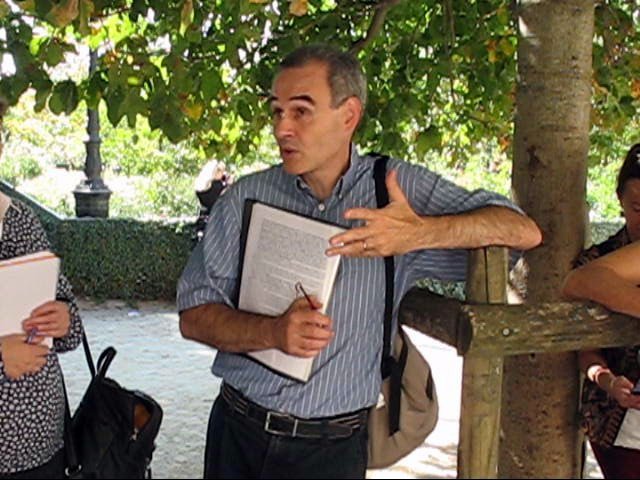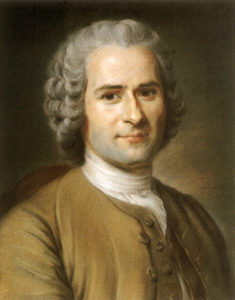
Ingénieur de formation (diplômé en 1984), Patrick Maunand a travaillé en tant que salarié d’entreprise pendant 12 ans.
Depuis 2002, il travaille à son compte, comme «guide littéraire», ce qui lui permet de combiner à la fois sa passion des Lettres et son amour de Paris. Tout au long de l’année, il anime des promenades et des conférences littéraires à Paris (annoncées sur son site internet www.lireetpartir.com).
Parcourir les lieux qui ont inspiré les écrivains, plonger dans l’histoire de Paris au travers des témoignages des écrivains… voilà ce que propose Patrick Maunand. A chaque fois, l’auditeur entreprend un véritable voyage à Paris au travers du temps et de la littérature. C’est le Paris de Molière, Racine, Rousseau, Voltaire, Balzac, Hugo, Musset, Gautier, Nerval, Baudelaire, Zola, Apollinaire, Fargue, Proust, Sartre et Beauvoir, Modiano,… qui lui est conté.
Il est également l’auteur de quatre ouvrages, tous édités chez Pimientos : Le Marais des écrivains (2003); Le Quartier latin des écrivains (2003); Les Halles des écrivains, des poètes et des chansonniers (2009); Montmartre des écrivains, des poètes et des chansonniers (2009).

Inspirante et repoussante, la capitale tant détestée par Rousseau s’est progressivement imposée comme un lieu équivoque qui marqua son œuvre.
Pour Rousseau, « l’homme de la nature », Paris n’a jamais été un lieu de vie très apprécié. Lorsqu’il y arrive pour la première fois en 1731, ses idées préconçues d’une capitale flamboyante et somptueuse sont rapidement mises à l’épreuve. Rousseau déchante face aux quartiers nauséabonds et aux comportements des hommes qui y vivent. Déçu, il dressera dans ses écrits un portrait peu flatteur de Paris dans lequel il réduira la magnificence de la ville en un lieu où se concentre misères sociales et vices. Source d’inspiration et de dégout, la capitale va nourrir son œuvre et lui permettre de se faire un nom. C’est à Paris même que nous vous proposons de suivre les pas du célèbre écrivain et philosophe, à travers un guide de deux promenades.

Victor Hugo c’est Paris. Qui en connait mieux tous ses recoins et ruelles, dans lesquels il fait vivre les personnages des « Misérables » ?
Blue Lion Guides vous propose deux circuits « Hugo à Paris ». Le grand poète a eu sans doute un regret éternel : celui de ne pas être né à Paris, la ville de son cœur. Paris devait devenir pour lui le phare de l’Humanité : « Au vingtième siècle, il y aura une nation extraordinaire […] Cette nation aura pour capitale Paris, et ne s’appellera point la France; elle s’appellera l’Europe. Elle s’appellera l’Europe au vingtième siècle, et aux siècles suivants, plus transfigurée encore, elle s’appellera l’Humanité ».
Le premier parcours de ce guide audio est un voyage au coeur du Paris de la jeunesse de Victor Hugo, et a pour centre le Jardin du Luxembourg. Il va de la rue des Feuillantines (Tu dois te souvenir des vertes Feuillantines…) à la rue du Dragon, en passant par la place Saint-Sulpice. Le second parcours est centré sur la période de la Monarchie de Juillet, une période d’irrésistible ascension pour Hugo.